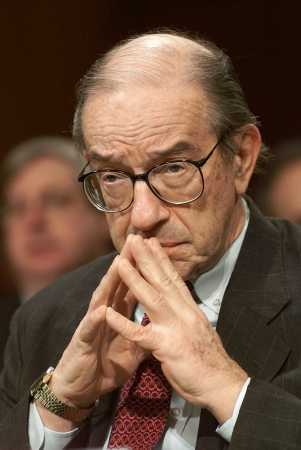 (Friday’s Populist Capitalist Blog Post)
(Friday’s Populist Capitalist Blog Post)
“Those of us who looked to the self-interest of the lending institutions to protect shareholder’s equity, myself especially, are in a state of shocked disbelief.”
— Alan Greenspan, then chair of the Federal Reserve, before a Congressional committee in October 2008, testifying on the financial meltdown that led to the Great Recession.
The cast of characters responsible for the great financial meltdown that lead to the Great Recession is considerable, too vast to enumerate here. One key factor: regulators, including the Federal Reserve, fell down on the job. Why?
Alan Greenspan did not fully understand the problem of perverse incentives multiplying rapidly throughout our economy. A perverse incentive is when it is rational for a person or group of people to do things that are bad overall, that produce a “good” outcome for them while producing a much worse outcome for a larger group of others. Such as, when the CEO makes BIG bucks while shareholders lose enormous sums.
Greenspan did not see the problem of perverse incentives because he is a decent human being, a man who is an academic at heart, a man who loves knowledge, theory, and correctness more than money. More specifically, he is a man who is by all accounts an intellectual genius, happy to earn a mere $191,400 a year as head of the Fed, content with the power, prestige, and perks of the position. While I agree that $190,000 is a fine sum of money, it is nada in comparison to Greenspan’s potential earning power in the private sector: the average CEO makes $6 MILLION a year and many pull down double-digit millions, some even compensation north of $100 million, with lucrative retirement packages, bonuses, and stock options. Indeed, it is not unheard of for a CEO to become a billionaire. Next to all that, $190,000 pales.
Evidently Greenspan does not have a greedy gene in his body and that may have been a shame because perhaps it kept him from fully understanding what unbridled greed and unchecked avarice would lead others to do. He may have had loads of book smarts but I suspect he is a bit short in street smarts. Greenspan expected the self-interest of the lending institutions to protect their shareholders. But those lending institutions were being run by flesh and blood human beings subject to temptation, short-term thinking, and, yes, self-delusion.
Unfortunately, it WAS in the CEOs’ self-interest to run their institutions into the ground.
When a CEO’s compensation system is set up as “heads the CEO wins, tails the shareholders lose,” what do you expect to happen? When the CEO can stash away enough to retire quite comfortably after just a very few years at the helm? There is a tremendous incentive to take risk, to try to ride a boom, knowing that if you can just keep it together long enough to get out before the chickens come home to roost you will be set for life?
Moreover, America’s fascination with quarterly earnings drove even quasi-rational CEOs to take inappropriate risks. If you chose to hold the line, not make sub-prime loans, not make no-documentation “liar” loans, not play the derivatives game, then your earnings started to lag. A year or two of this (if that long) and the shareholders, along with your top management team who are not making the bonuses their peers are making, are calling for your head. The regulators have drunk the Kool-Aid, bought off on the nonsense that markets are self-regulating, and stuck their heads in the sand. There no longer is a guard rail to keep you from plunging over the cliff, so plunge you do.
Well, markets are self regulating after a fashion and after a while (plunging off the cliff and gravity does take its eventual toll), but boy, oh, boy, the pendulum swings can be brutal and a lot of innocents can get hurt, and not all the guilty get their just desserts. Suffice it to say the economic whiplash caused by the extremes of self-regulating markets can put a lot of families in a lot of hurt for a very long time.
Moral? Several!
Street smarts are just as important as book smarts.
If people can be irrational, then markets run by people can be irrational, too.
Never send the sheep out to negotiate with the wolves.
You need rules, you need referees, and you need good, strong ones. This is true on a playing field and it’s all the more true on Wall Street.


0 Comments